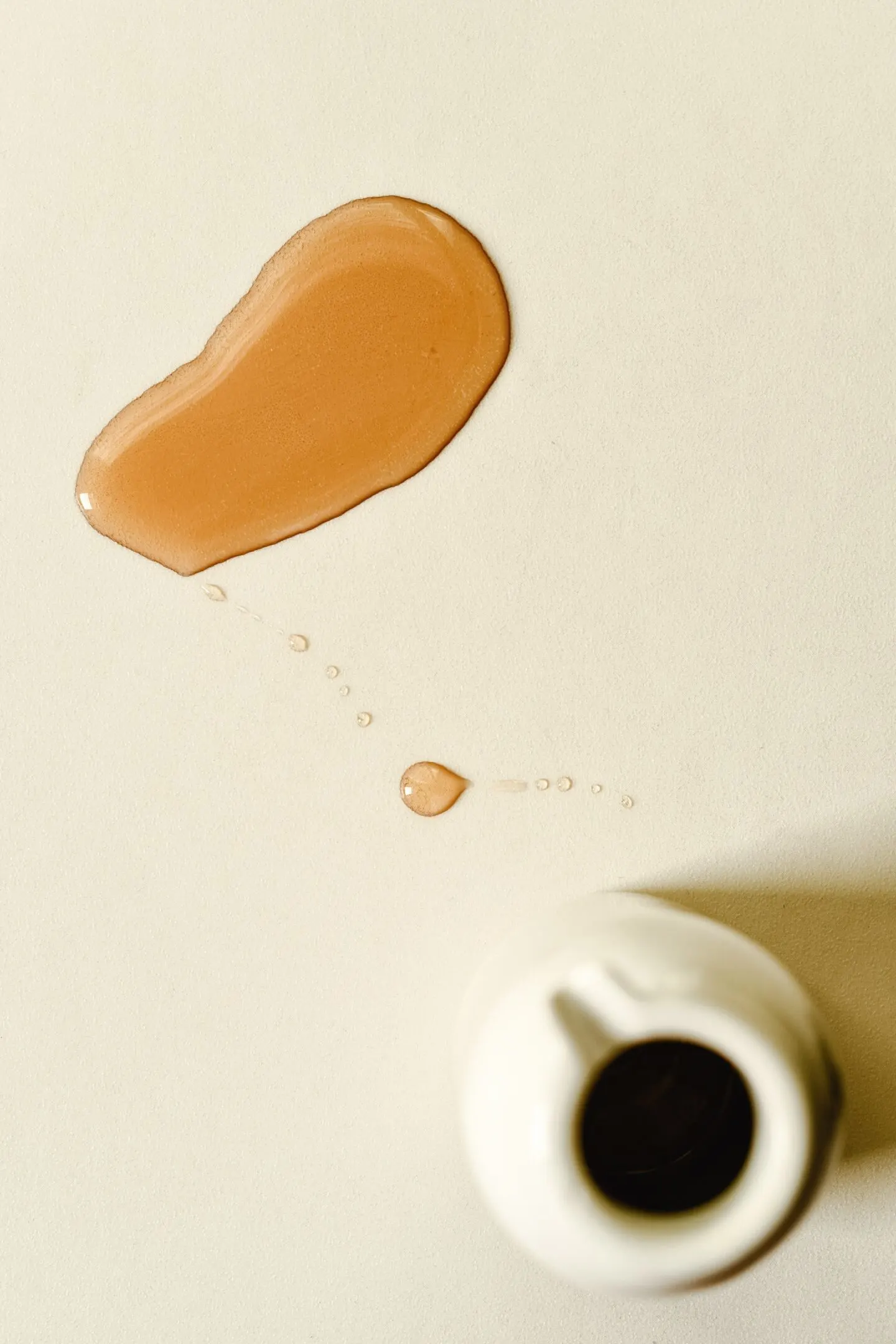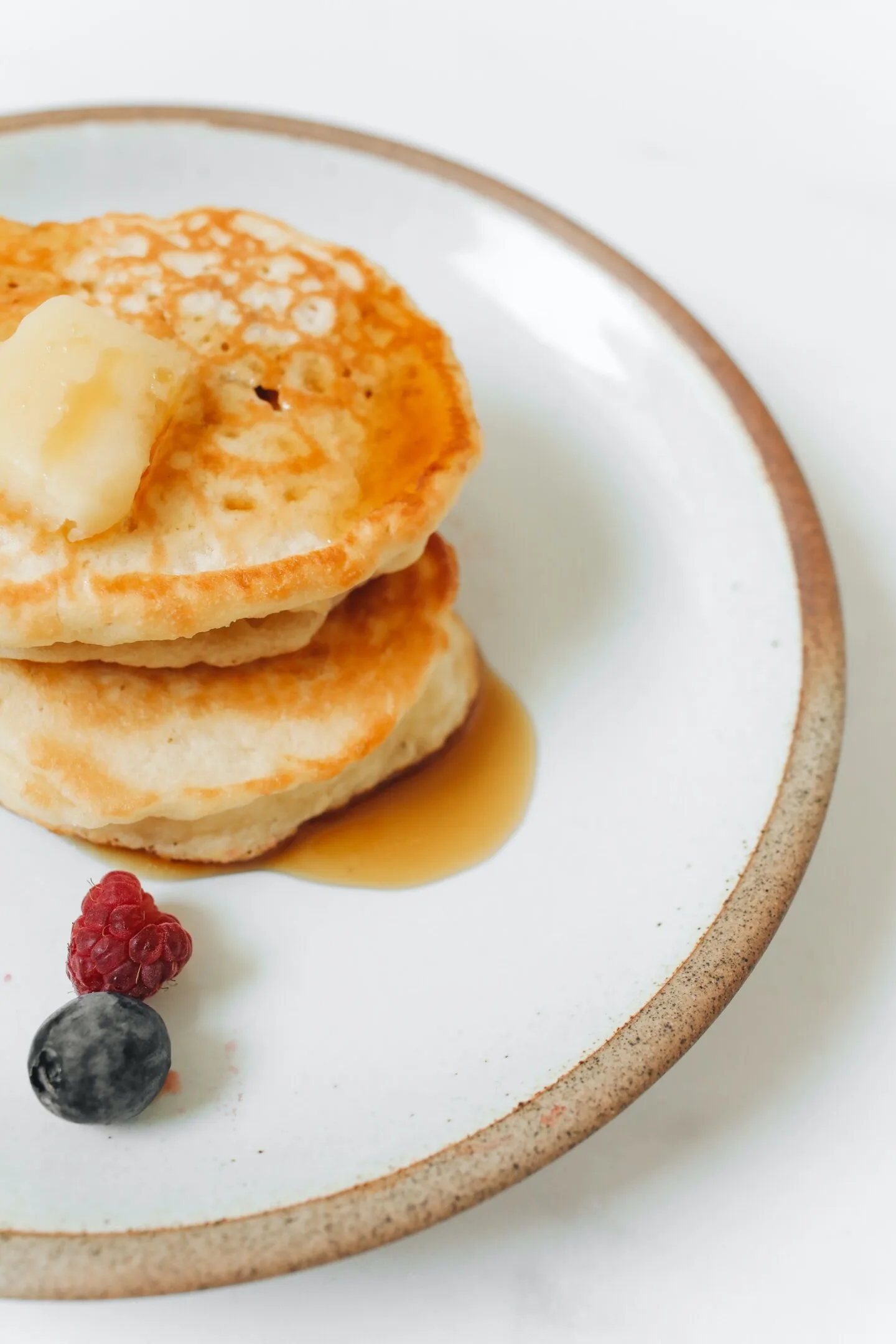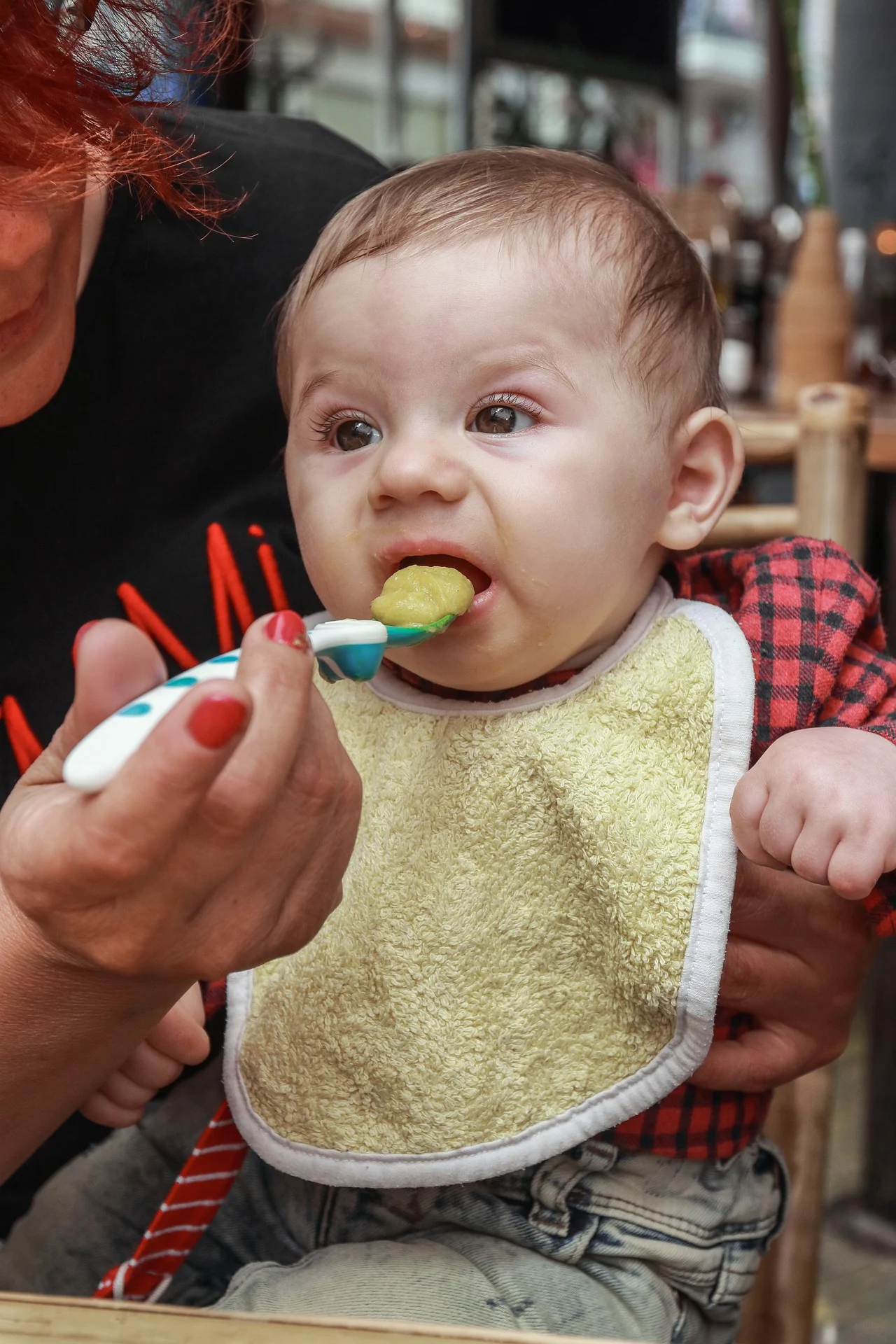Baby-led weaning is an exciting time for parents and children alike. With so many new flavours and textures to explore, it’s perfectly normal for parents to question whether the diet they’re offering is safe for their babies to consume. A popular query I receive is, “Can babies have maple syrup?”.
Maple syrup is considered safe to offer after your baby’s 1st birthday, although it’s suggested that you wait a little longer to introduce extremely sweet foods such as syrup due to the likelihood that these foods will discourage children from developing an appreciation for unsweetened food items.
Maple syrup should not be given to babies between the ages of 6 and 12 months.

Can babies have maple syrup safely?
In order to fully answer the question ‘Can babies have maple syrup?’, there are several areas of concern that parents should read up about before offering it to their child.
Although maple syrup is a natural product that’s considered safe for babies to eat, that doesn’t necessarily make it healthy.
This blog post is going to take a look at the following points in order to help parents and carers like you to assess the pros and cons of feeding maple syrup to babies as part of their baby-led weaning journey.
- What is maple syrup?
- Is maple syrup healthy for babies?
- Can my baby be allergic to maple syrup?
- Can maple syrup result in infant botulism?

What is maple syrup?
Maple syrup is a natural source of food that comes from maple trees. The syrup consists of the sap of the trees which is stored in the trunks and roots before winter.
As the weather cools, the starch is converted into sugar that rises in the sap at the end of winter and early spring.
This fluid is then tapped by drilling holes into the trunks where it is then processed in a way that heats the sap up in order to evaporate the water.
Eventually, manufacturers are left with the concentrated sugar syrup; this product is then bottled and sold as maple syrup.
Is maple syrup healthy for babies?
Parents asking ‘can babies have maple syrup?’ can rest assured knowing that there are very few health risks to your baby should they consume some.
However, although maple syrup isn’t technically unsafe for children, the exceptionally high amounts of sugar present in syrup can cause energy crashes, resulting in difficulty napping and sleeping, as well as affecting your baby’s mood.
Moreover, high amounts of sugar can also increase the risk of avoidable medical issues like diabetes and obesity. This may lead parents to ask ‘can babies eat honey’ instead, which leads us to our next point.
Can maple syrup result in infant botulism?
Infant botulism is a bacterial illness that’s caused by the consumption of honey containing Clostridium botulinum spores. Babies under the age of 1 year should not eat honey as their immune systems are not strong enough to fight the bacteria.
According to dietitians at WINIT Clinic, both maple syrup and honey are natural sweeteners, but unlike honey, maple syrup has a drastically lower risk of causing botulism in children.
This is because maple syrup is a highly concentrated liquid that’s extremely high in sugar and contains very little water. The manufactured and treated syrup, therefore, offers an unfavourable environment for C. botulinum sports to grow.
Raw maple sap, on the other hand, does present a botulism risk because it is low in sugar, less concentrated, and not very acidic. These conditions favour the development of the toxin, so be sure to never offer raw maple sap to your baby.

Can my baby be allergic to maple syrup?
If your main concern is about allergies when asking the question: ‘can babies have maple syrup?’, you’ll be pleased to learn that maple syrup is not a common allergen. With that being said, it’s still wise to introduce maple syrup to your baby in the same way you would when introducing any new food to your baby’s diet.
Start by offering a small quantity of maple syrup for the first couple of servings and only offer one new food at a time. If you notice there are no adverse reactions, you can gradually increase the quantity of syrup in the future – but do be aware that you need to keep tabs on your child’s overall sugar consumption when doing this.
Healthy Alternatives For Natural Sugars.
Babies have a natural affinity to sweet foods, which is one of the main reasons parents and carers should wait before offering overly sweetened foods to babies and small children.
Becoming too used to sugary foods can limit the number of unsweetened food items that children are willing to eat, therefore resulting in a poor and potentially unbalanced diet.
Therefore, when considering ‘can babies have maple syrup?’ it’s best to consider alternative methods of naturally sweetening your child’s foods instead.
Instead of using maple syrup to sweeten meals for your baby, consider some other natural sources of sugar, such as:
- Fruits, such as berries, mashed bananas, and apples.
- Smoothies.
- Cocoa.
- Raisins and dates.

The best ways to introduce your baby to maple syrup.
Now you know that the answer to ‘can babies have maple syrup’ is yes, once they’re around 12 months old, it’s time to start preparing some healthy treats and meals that your baby can enjoy as part of their baby-led weaning journey.
Remember that maple syrup is extremely high in sugar, so there’s no need to add a lot to your cooking. It’s also advisable to only offer it from time to time to ensure your baby still has a varied and balanced diet.
Breakfast is a great time of day to offer your child a small amount of maple syrup. It can be used in many baby-led weaning breakfast meals including healthy baby muffins, on pancakes, with fruit, on toast, or stirred into full-fat yoghurt.
There are also some nifty ways to use maple syrup when it comes to thinking of baby-led weaning dinner ideas to try out on your child. For example, use maple syrup when roasting vegetables or meat.
You can even use maple syrup in your baking sessions with your little one to create tasty muffins, granola bars, and flapjacks.

Conclusion
This post has answered the most commonly asked questions surrounding the query: “can babies have maple syrup?”. We now know that babies can indeed eat maple syrup, although it’s advised that they do not do so until they are at least 1 year of age.
There are several ways to use maple syrup in your cooking and meal prep, although it’s advisable that you keep close tabs on your baby’s sugar consumption as excess sugar can cause preventable health problems, such as obesity.
Have you given your baby maple syrup before? I’d love to know what they thought and how you chose to offer it to them, so please let me know about your experience in the comment section!
